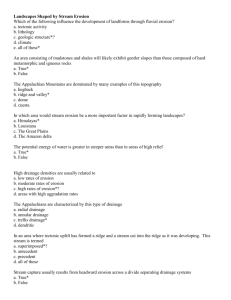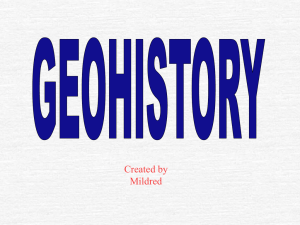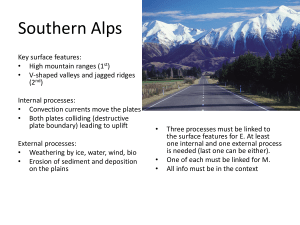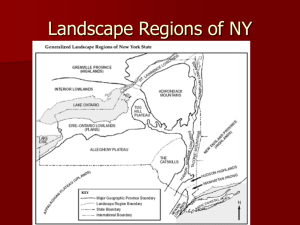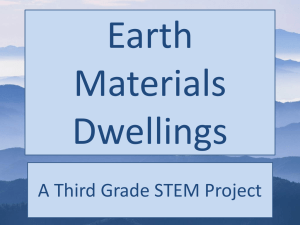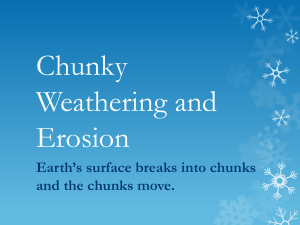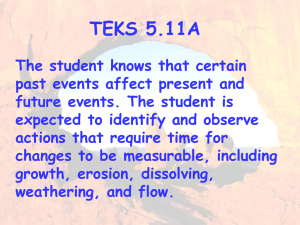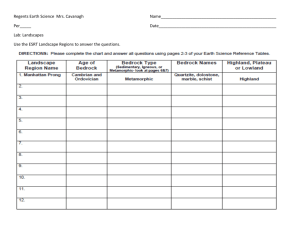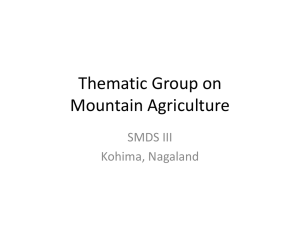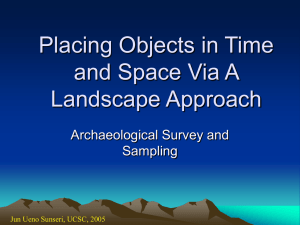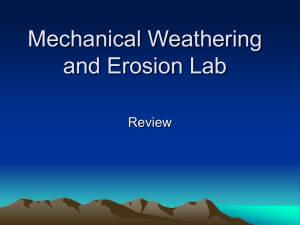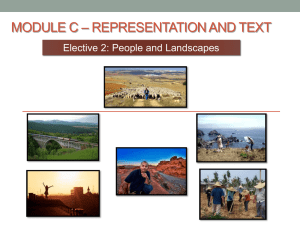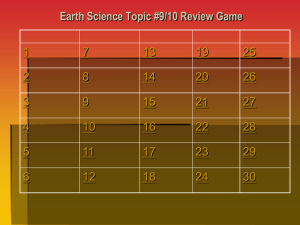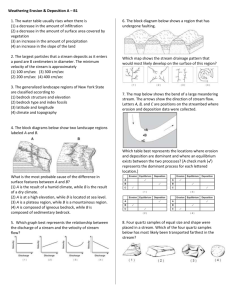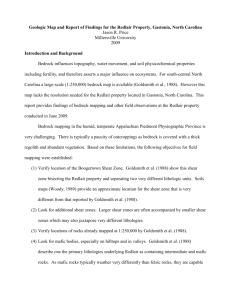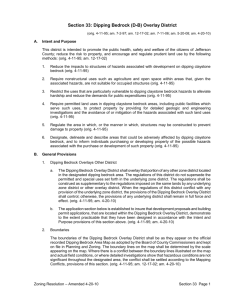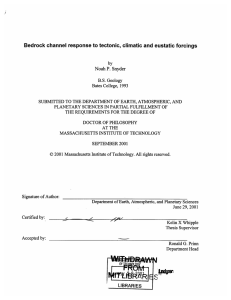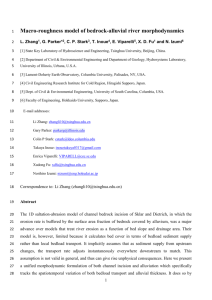Landscapes
advertisement
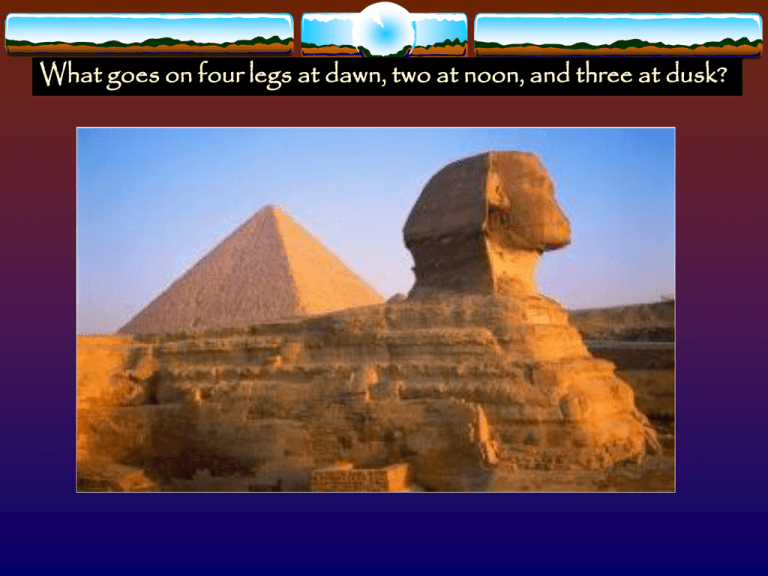
What goes on four legs at dawn, two at noon, and three at dusk? Landscape Development I. Landscapes are the physical features of the earth’s surface. •Result from weathering, erosion, deposition and uplift. Mountains, Plateaus and Plains •Are the 3 major landscape classifications. Landscapes are defined by three different characteristics 1. Elevation 2. Type of Bedrock 3. Stream Drainage Patterns. II. Forces resulting in Landscapes 1. Uplifting Constructive Forces - Mountain Building & Deposition 2. Leveling Destructive Forces - Weathering & Erosion Landscapes are in a constant cycle of erosion, deposition, & uplift. A dynamic equilibrium can be reached when….. • a balance between erosion and uplift is equal. If uplifting is greater than erosion a mountain will grow. If erosion is greater then uplift a valley will result. Mountain Landscapes Geologically young mountain ranges have angular features and are tall. Old mountain Ranges have more erosional features and less elevation. Young Teton Mountains note the fault line Highly eroded features of the old Adirondacks III. Landscapes are Separated by Boundaries 1. Two adjoining massive structures with different elevations 2. Each having different bedrock compositions ESRT page 2 & 3 Allegany Plateau @ Helderburg Escarpment in Albany Valley Floor Of Post Glacial Lake Albany Allegany Plateau @ Letchworth State Park in Western New York 300 miles away from Albany Resistant Bedrock With Same Composition and Fossils As the Helderburg Escarpment IV. Effects of Climates On Landscapes 1 Climate factors such as temperature & moisture greatly effect landscape features. a) Moist climates create rounded hill slopes… · With well-developed soils · Permanent stream patterns b) Arid climates produce steep angular cliff faces. · Have poorly developed soils · Seasonal streams V. Bedrock composition will influences the type of Landscape (Competent Rocks) are hard and resistant bedrock layers which protect underlying stones from weathering and erosion. -Due to their strong chemical composition. (Incompetent Rocks) are weak & least resistant to weathering. - Softer layers tend to have been cut into & have debris piles. Due to their weak chemical compositions. End Stage of a Plateau: With an arid climate and resistant bedrock mesa’s are produced in Arizona's Valley of the Gods The meandering Goose Necks of the Green River. • Note the arid bedrock features & poor soil development. The Grand Canyon opens on the Colorado Plateau. Arches National Park Hoodoo’s and Arches carved by differential weathering of wind abrasion and rare rainfall events in the southwestern desert climate. Ship Rock a volcanic plug known as a kimberlitic pipe is the remnants of a weathered volcano Indian Dwellings Carved into Volcanic Tuff Newspaper Rock VI. Drainage Patterns & Basins A drainage basin is a geographic area in which water will collect: 1. all streams flow from high to low elevations 2. water eventually reaches the ocean 3. drainage basin are delineated by mountain divides A. Dendritic: · A pattern of stream development formed on plateaus. · The composition and hardness of the bedrock is consistent . Dendritic Stream Pattern. B. Annular (Rings): Drainage occurs around a dome. A Dome Showing Anticline Deformation. C. Radial: · Drainage occurs around a volcano. D. Trellis Drainage Water flows straight along the fault lines VII. Human Activities Influence the Landscape · Excavations for city development, road construction, field cultivation, and deforesting practices can increase erosion . Which can result in -Desertification -Negative economic impacts -Reducing ground water supplies -Increases subsurface pollution Landscape destruction can be prevented - Tilling and contour farming - Natural Pesticides - Zoning land masses for forest preserves - Rebuilding waste water treatment facilities - Recycling to reduce landfills and dumps. The end
